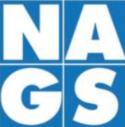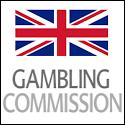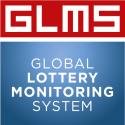Gaming Authority Chairman René Jansen Speaks at Casino Operations Summit Amsterdam 2024
Many thanks for the invitation to speak here. The gambling sector has received a lot of attention, especially since the opening of the online market. Unfortunately, that attention is not always positive. We see this critical, sometimes even negative sentiment in the news media and in the political arena.
You won’t have missed it. Last Tuesday, no fewer than 10 motions were adopted by a majority of the House of Representatives. This also included motions that outgoing Minister Weerwind advised against. Some of these motions could have far-reaching consequences for the regulation of the online gaming market.
I am mainly talking about the call for the government to ban online advertising and the House’s call for a ban on online games with a very high risk of addiction.
It is clear: the view of a majority of the House of Representatives on the regulation of the online market has clearly changed. And what the future will look like is still unclear. We now have to wait and see what Minister Franc Weerwind’s response will be.
Due to the extensive attention paid to online gambling by politicians and the media, it sometimes seems as if country-specific games of chance are forgotten. I must honestly admit that our own work agenda since February 2019 has also been necessarily and consciously strongly determined by the challenges and dynamics of online.
My own public contributions – speeches, blogs and interviews – have also been strongly influenced by this. However, my contribution this morning will once again focus on ‘land based’. I would like to take you through the most important results of the inspections we carried out at physical arcades last winter.
Enforcement of illegal land-based supply
However, let me start with our visibility in tackling illegality. In December last year we updated our enforcement policy for the physical domain. The core of this is: being more visible and tackling illegal land-based gambling more firmly.
When I am asked about tackling illegal online websites, I often say that applying for and maintaining a license requires a lot from providers.
We have to make that worth it.
This applies equally well to country-specific offerings: in addition to the efforts that operators make to make safe gaming possible, the Ksa can be expected to take a firm approach to illegal offerings.
So we act more proactively and independently.
Previously, we were mainly involved in actions by partners such as municipalities or the police. Our inspectors now focus more often on their own investigations. This is paying off: in recent months we have stopped several large-scale illegal activities, such as bingos, in various actions. In this way we also increase awareness of illegal physical gambling. We are already seeing the results of these actions in practice: the number of reports to our information line of illegal bingos, lotteries and poker tournaments is steadily increasing.
And that leaves you wanting more.
We will always consider whether we take a supporting role or whether we ourselves are ‘in the lead’. The support mainly takes place for broader actions in collaboration with municipalities, RIECs and the police. For example, in actions aimed at an integrated approach to undermining at regional or local level. In general, municipal sanctions and criminal proceedings are central to their settlement.
Where we are ‘in the lead’, we will also focus more and more on using our own administrative law instruments, including the imposition of fines.
Inspections at arcades for compliance with duty of care
In addition to tackling illegal activities, we have also continued our supervision of the legal market (providers with a permit).
We went into the country in December 2023 and January ’24 for inspections at arcades, because supervision of physical locations cannot only be done from behind a desk. What’s happening at those arcades in the country?
With the entry into force of the KOA Act, the duty of care for gaming halls and Holland Casino branches has also been tightened. We wanted to know how this duty of care works out in practice. For two months, our colleagues visited twenty arcades throughout the country. We did not announce our visits in advance: we stood unexpectedly at the entrance.
Our supervisors did not play themselves, but they did have good discussions. The arcades visited were everywhere very willing to cooperate in the research. We heard several times how much owners or operators appreciated the fact that we came to take a look behind the scenes. I think that is worth a compliment.
We saw that a lot of attention is paid to the duty of care, and that most halls have taken steps to comply with this. However, the implementation does not always match the good intentions that are expressed out loud. Of course I find that worrying.
It is particularly striking that players are not always closely monitored and that their gambling behavior is not always properly registered, while you would expect this to be possible at a physical location.
The problem is covered in the established addiction prevention policy of the halls visited. All arcades visited agree that a long or increasing playing time is a worrying signal that may indicate excessive participation in a game of chance and the risk of addiction. But how to monitor this or how to keep track of the playing time? This was subsequently not elaborated upon.
In addition, not one of the arcades examined had a maximum playing time. That is a concern in any case, but especially in halls that are open 24 hours a day and therefore have no natural and forced departure time for visitors.
Our concerns were reflected in the recent two-minute debate in the House of Representatives, where Ms Bikker from the Christian Union asked whether municipalities should be given the opportunity to limit the opening hours of Holland Casino branches. This specifically concerned the branch in Rotterdam, where the city council is divided over exactly those opening hours. There are of course more halls with a 24-hour opening, and it is precisely there that extra attention must be paid to the presence and playing time of visitors.
Another worrying signal from our inspection visits is playing on multiple machines at the same time. This was allowed in all halls visited.
We also visited arcades that have no limit on the number of machines that can be played at the same time. In addition, the use of insert cards was possible in all halls examined. This encourages immoderate play. Furthermore, not all halls monitor visitors’ PIN behavior or have a maximum number of transactions.
What have our regulators encountered regarding Cruks registration?
It is basically clear how Cruks checks should be carried out, but practice appears to be difficult. There are arcades with an open entrance, where players can step over the tightrope during busy times or simply go around the counter. In our opinion, this is an easily mitigated risk factor that deserves to be addressed.
Arcade employees are generally well trained in Cruks, but this knowledge is still inadequate in some areas. An important example of this is the involuntary Cruks registration.
Gaming arcades are obliged to report players who gamble excessively, but do not respond to measures taken by the provider. We can register these players in Cruks based on a notification: the involuntary registration. However, we almost never receive these reports from providers of physical gambling. The on-site conversations showed that employees were sometimes not even aware of this option.
The number of registrations of interventions also varies considerably: we have seen examples of halls that have not registered any interventions in a quarter. Has nothing actually taken place there, or have the potential problem players not been sufficiently identified?
Compare it with the bartender at a brown café: his regular chat with regular guests is also a form of social control. We also see regular visitors in arcades. These are precisely what should catch the eye of employees. For them, a long playing time is seen as normal, while it is actually a signal of excessive gambling. Especially if there is a change in the already high visit frequency: is Karel suddenly coming in much more often than before? Has Anna’s running time increased dramatically?
It is precisely at those moments that it is up to the employees to form a serious picture of whether everything is still going well with the visitor. He or she should also report on this.
Extra guidance for arcades
Ksa employees are currently still preparing a complete overview of the research findings. Following the inspection visits and discussions, we will provide additional guidance for arcades later this year in the area of their duty of care. I will mention some preliminary thoughts about this.
In our opinion, any addiction prevention policy should pay attention to a maximum number of permitted playing hours and playing on multiple machines at the same time. In addition, we would like to see the use of credit cards for payments prevented as much as possible. It is also important that these matters are not only elaborated in the addiction prevention policy, but that this policy is actually acted upon. Because paper is patient and ultimately it is about how you actually implement the policy.
Discussion about the role of monopolies in gambling policy.
Of course you also have a lot going on; I am aware of that. I would like to briefly mention two issues that may have generated a lot of discussion within the sector.
The first is the role of monopoly licenses in gambling policy. A recent ruling by the East Brabant District Court has fundamentally called into question the monopoly system for certain games of chance. This concerns a case in which the Ksa has refused to grant licenses to JVH for the lotto game, the instant lottery and physical sports betting.
After all, this concerns monopoly permits created by law, which are in the hands of legal entities of NLO, the Dutch Lottery. The Court does not – or no longer – agree with this.
I don’t need to elaborate on the background of this case for an audience like you.
I cannot predict whether the ruling could also have consequences for other monopoly licenses in the Gaming Act, such as those for casino games. We do see a correlation with the current legal organization of the lottery market.
And with the current discussion about a possible privatization of NLO. This makes this an extremely serious matter.
I cannot anticipate the discussion that will take place about this in the Administrative Jurisdiction Division of the Council of State, but I can comment on it in a few words. In the judiciary, the penny can always fall either way, so prepare yourself for both outcomes.
In this case, however, we are surprised by the reasoning, the interpretation of the facts and the consideration of the Court. In previous decisions about conditions for permits, we have often relied on the horizontal consistency of gambling policy. Those assessments were supported by the judge, but could now be undermined.
Again, the consequences can be far-reaching. Staying close to home: I find it very undesirable to be forced to make hasty decisions in the relevant permit applications within a period of a few weeks. We have therefore not only appealed to the Administrative Jurisdiction Division, but also requested an interim measure. What does that mean? We have asked the Department to suspend the ruling of the East Brabant District Court at short notice until a decision has been made on the appeal. The Department granted this request last Friday.
To be continued!
Slot machine regulations
A second point of attention that is widely shared within the industry is the modernization of the slot machine title in the law.
We have heard the call from the sector, and the Ksa has already made it itself, including in our legislative letter of June last year. This topic deserves to be tackled soon.
Modernizing the legislation ensures that we pave the way for the arcade of the future. I then see a so-called ‘smart’ arcade. Internally we sometimes call this a ‘Koa with short wires’: games of chance at a very short distance.
That would mean moving away from the individual machine, which has no idea who is pressing the buttons. Instead, you go to a system with a player account where ‘cashless play’ makes it visible who is playing, for how long, and with what amounts. A large part of the concerns about the duty of care that I mentioned earlier in my story can also be addressed in this way.
I understand that this is currently a thing of the future: a lot of thought still needs to be given to the implementation of, for example, ‘cashless play’ systems. How do we ensure that we combat money laundering? What do we do with player credits if an arcade unexpectedly goes bankrupt?
There are still many questions to be answered, but there are also many possibilities. That is why we must not only look at the country-specific offer with a fresh, open view, but also advocate for the modernization of legislation. A new cabinet, yet to be formed, offers an excellent opportunity for this.
Ladies and gentlemen, I am going to conclude. I understand that times are turbulent for the slot machine industry. In the latest market scan, in which we compared land-based and online markets, we saw that the industry has still not fully recovered from the corona crisis. We also heard this from Holland Casino last week during the presentation of its annual report.
We also see that the online market has probably taken away part of the turnover from land-based. And that there will always be a certain pressure from the illegal supply.
In this challenging landscape, it is important to continue to keep an eye on an attractive country-specific offer.
However, all this does not absolve the sector of the core task assigned to it by society: providing a safe environment for gambling. This means that all operators must take their duty of care very seriously, including by keeping a close eye on the behavior of the visitors present. Make sure that for visitors to an arcade or a Holland Casino branch, it remains just relaxation or an evening out.
That also seems to me to be the best basic investment for the future of land-based gambling in the Netherlands!
Thanks for your attention.




























